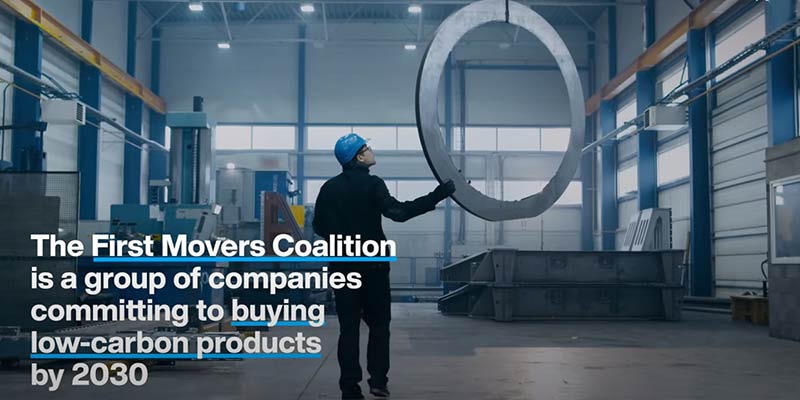- World
- May 28
Explainer / What is the First Movers Coalition?
India has joined the First Movers Coalition, a global initiative aimed at decarbonising the heavy industry and long-distance transport sectors responsible for 30 per cent of global emissions.
Besides India, Denmark, Italy, Japan, Norway, Singapore, Sweden and the United Kingdom have also joined the US as government partners to create early markets for clean technologies through policy measures and private sector engagements.
The announcement was made at a press briefing hosted by the World Economic Forum in Davos during its Annual Meeting 2022.
What is the First Movers Coalition?
• At the 2021 United Nations Climate Change Conference (COP26), the US announced the launch of the First Movers Coalition, a new platform for companies to harness their purchasing power and supply chains to create early markets for innovative clean energy technologies that are key for tackling the climate crisis.
• The First Movers Coalition was created through a partnership between the US Special Presidential Envoy for Climate and the Office of Global Partnerships, and the World Economic Forum, in collaboration with the US Departments of Commerce and Energy.
• The International Energy Agency forecasts that roughly half of the emissions reductions to reach net-zero emissions by 2050 must come from technologies that are not currently ready for commercial markets.
• For ‘hard to abate’ sectors to decarbonise at the speed needed to keep the planet on a 1.5-degree pathway, they require low-carbon technologies that are not yet commercially competitive.
• The Coalition targets sectors, including aluminium, aviation, chemicals, concrete, shipping, steel and trucking, which are responsible for 30 per cent of global emissions — a proportion expected to rise to over 50 per cent by mid-century without urgent progress on clean technology innovation.
• To jump-start the market, the Coalition’s members commit in advance to purchasing a proportion of the industrial materials and long-distance transportation they need from suppliers using near-zero or zero-carbon solutions, despite the premium cost.
• If enough global companies commit a certain percentage of their future purchasing to clean technologies in this decade, this will create a market tipping point that will accelerate their affordability and drive long-term, net-zero transformation across industrial value chains.
• In addition to the US government, the coalition now has India, Japan and Sweden in the Steering Board.
• These government partners will invite companies from their countries to join the coalition and pursue public policies to commercialise the green technologies corporate members commit to purchasing.
• The new corporate members include global technology giants Alphabet and Microsoft, along with AES, Aveva, Ball Corporation, BHP, Consolidated Contractors Company, Ecolab, Enel, EY, FedEx, Ford Motor Company, HeidelbergCement, Mitsui OSK Lines, National Grid, Novelis, PWC, Schneider Electric, Swiss Re and Vestas.
• The companies – whose collective market value exceeds $8.5 trillion across five continents – have sent the largest market signal in history to commercialize emerging clean technologies by making advance purchase commitments by 2030 for near-zero carbon steel, aluminium, shipping, trucking, and aviation as well as negative emissions through advanced carbon dioxide removal technologies.
• The financing commitments will ensure new technologies are available for scale-up by 2030 and make a critical contribution to achieving net-zero emissions by 2050.
Manorama Yearbook app is now available on Google Play Store and iOS App Store

